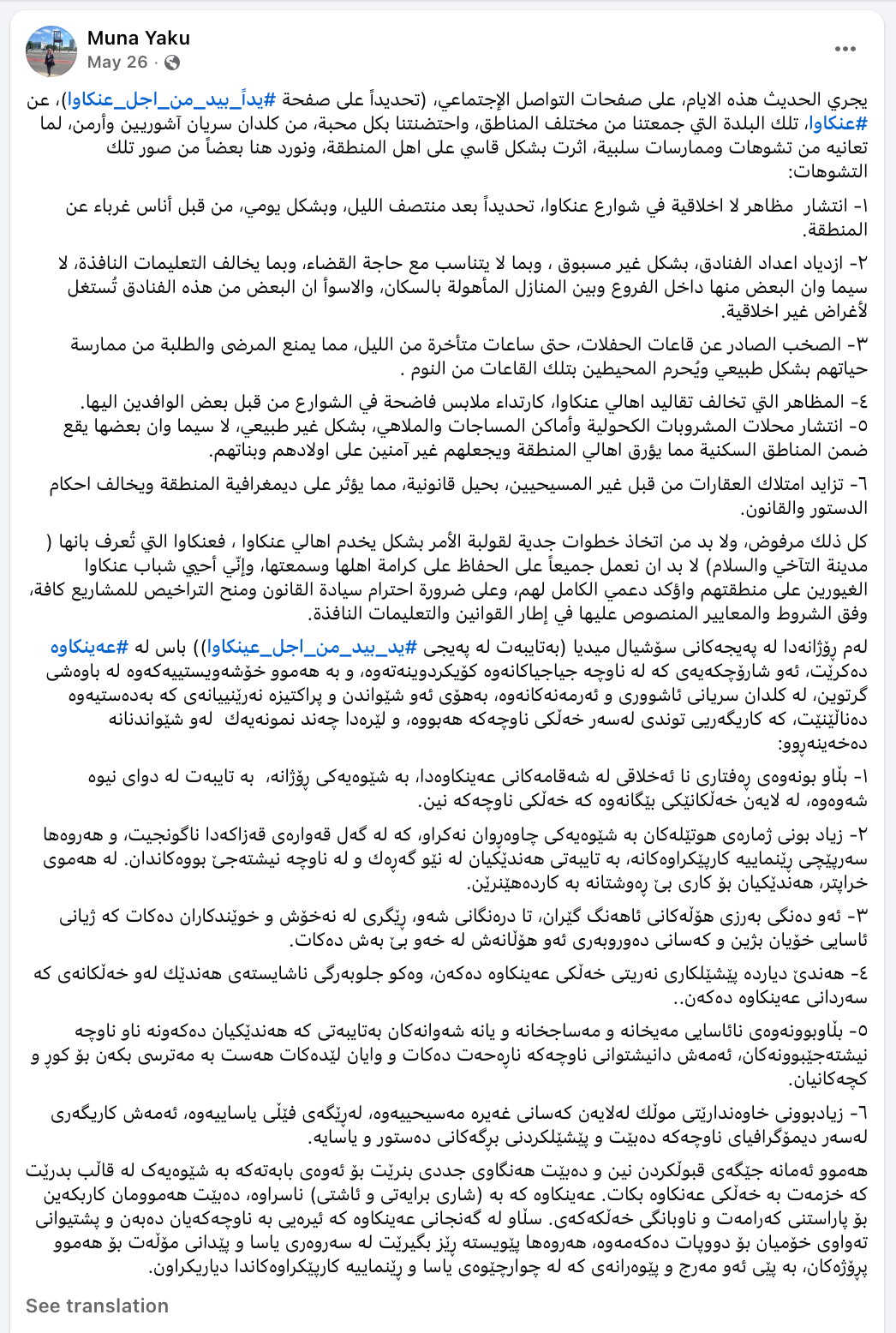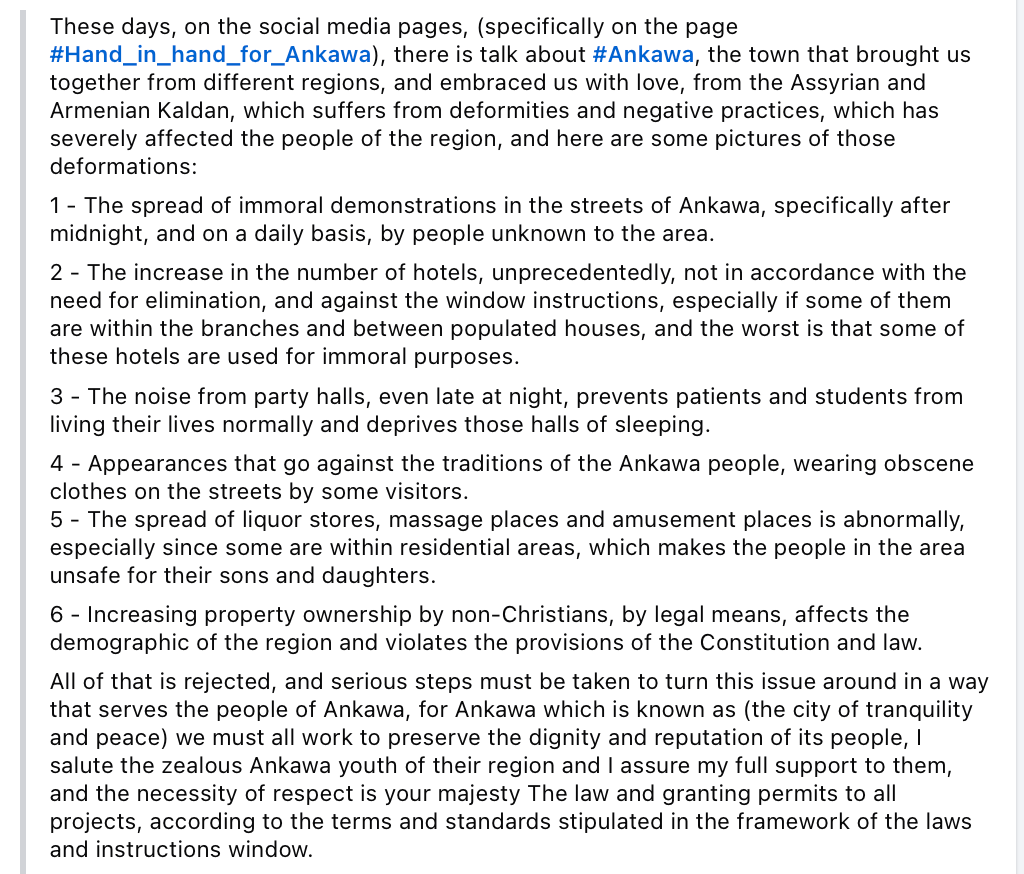ANKAWA, Northern Iraq, May 28, 2025 – Residents of Ankawa, a predominantly Assyrian suburb of Erbil, have organized mass protests that go well beyond objections to bars or brothels. Influential voices in the community say these gatherings stem from fears of an orchestrated demographic shift that could reshape Ankawa’s longstanding cultural character.
Local leaders and families argue the expansion of nightlife venues is not an isolated issue, but rather part of a broader pattern, orchestrated by the Kurdish rulers while they publicly paint an image of peaceful co-existence. The residents of Ankawa are raising alarms about ongoing changes that risk diluting Ankawa’s Christian and Assyrian identity – an identity they see as being gradually undermined through zoning and development decisions.
Several demonstrators carried signs stating demands for thoughtful urban planning that prioritizes existing communities. Poster slogans called for greater transparency in licensing procedures and services tailored to Ankawa’s heritage–not just tourist or entertainment offerings.
What began as small assemblies this spring grew rapidly into a series of well-attended rallies. Community organizers emphasized that, although concerns about bars and nightlife sparked the protests, the larger worry is about preserving Ankawa’s long-term cultural and religious fabric.
A prominent participant expressed: “We treasure our neighborhood, our churches, our language–and we feel that decisions are being made without us, altering who we are.”
These concerns were echoed in a public statement by Dr. Muna Yaqo, Chair of the Independent Human Rights Commission in Northern Iraq. In a detailed Facebook post, Dr. Yaqo voiced her alarm over what she characterized as a deepening crisis in Ankawa, one that transcends individual grievances and signals a broader erosion of the town’s cultural and moral foundations.
Dr. Yaqo described how the once-quiet streets of Ankawa have become unrecognizable after midnight, with unfamiliar individuals engaging in immoral behavior openly in front of residents. She highlighted the unchecked proliferation of hotels, many of which are being constructed at a rate far exceeding the town’s actual needs. Some of these establishments, she noted, are situated within residential neighborhoods and are allegedly being used for activities that breach both legal and ethical standards.


A post on Facebook from 26 May, 2025 in Arabic and Kurdish on the personal profile of Dr Muna Yako where she describes the detonating situation in Ankawa. Image to the right is an automatic English translation of Dr Yaku's post on Facebook.










